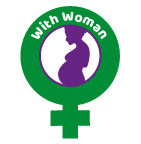We sent a letter to the World Health Organisation & the leader of their Maternity panel. We object to the proposed formation of a group to develop guidelines on trans healthcare, with no specialist input on mother & child health.
We are With Woman, a grassroots collective of female midwives, healthcare workers, allied professionals, academics, peer counsellors, advocates and volunteers who work with mothers and children in the field of maternal and child health.
We note the proposed composition of WHO’s group to develop guidelines for the healthcare of trans people.
We are very concerned there is no single specialist from the field of maternity and child health. This appears to us as a major gap and a potentially lost opportunity to address serious health concerns affecting mothers and their children.
In many European, North American and Australasian settings, more and more girls and young women are contacting clinicians, expressing a desire to present as men or as an identity other than women.
The ‘gender affirming care’ on offer as a result involves administering hormones and surgery. These interventions all have life-long consequences for maternal and child health.
We are concerned about the unwanted effects of drugs to suppress puberty, and the use of testosterone, in females who wish to present as male or non-binary. Histological changes are seen in the vagina, uterus and ovaries which affect fertility, pregnancy and birth. (1). Pelvic pain and new onset bleeding are seen following use of testosterone (2) .
Evidence-based guidance is badly needed for clinicians and their patients, to assess safety, dosage, and whether and when to desist testosterone use, in order to restore fertility or to maintain safety and health of the woman and the fetus in pregnancy. A recent paper (3) argued in favour of considering the continuation of testosterone during pregnancy, despite the lack of research, including on the effect of testosterone on fetal development. The paper’s authors were from the UK publicly-funded Trans Pregnancy Project (4).
Bilateral mastectomy is becoming more common, and there are examples of doctors performing this on girls from the age of 13. Surgeons advertise this on social media and some celebrities have publicised the results of their own operations.
Phalloplasty – construction of a penis – involves major surgery, with unpredictable results and high risks of complications and permanent damage to health (5).
Removal of uterus and/or ovaries is also presented as healthcare. Again, these surgeries have known unwanted effects, justifiable in some clinical situations, but highly questionable when the organs are healthy and functioning well.
We have come across no clinical guideline that includes the importance of discussing the impact on any of these interventions on any future pregnancy and motherhood.
In particular, mastectomy precludes breastfeeding. This removal of the chance to breastfeed has an impact on the physical health of the mother and child. In addition, there are reports of breastfeeding grief among formerly trans-IDd women who are de-transitioning, and regret that breastfeeding was not mentioned in pre-surgery discussions with clinicians (6).
The health impact of hormones and of surgery is likely to be more marked in resource-poor settings. Not breastfeeding, we know, is associated with poorer outcomes for both mother and infant health, and the sometimes extensive adverse effects of surgery are far less easily addressed outside high-income countries.
Maternal and child heath specialists will be aware of all of this, and we strongly urge that the lack of representation from these fields on guideline development is addressed.
1. Fertility concerns of the transgender patient
2. Uterine cramping and bleeding in transgender and nonbinary individuals on gender-affirming testosterone therapy
https://doi.org/10.1016/j.contraception.2022.09.112
3. Medical uncertainty and reproduction of the “normal”: Decision-making around testosterone therapy in transgender pregnancy
https://doi.org/10.1016/j.ssmqr.2023.100297
4. Pregnant Men: An International Exploration of Trans Male Experiences and Practices of Reproduction
https://gtr.ukri.org/projects?ref=ES%2FN019067%2F1#
5. Outcomes following gender affirming phalloplasty: a systematic review and meta-analysis
https://doi.org/10.1016/j.sxmr.2022.03.002
6. Breastfeeding grief after chest masculinisation mastectomy and detransition: A case report with lessons about unanticipated harm



Leave a comment